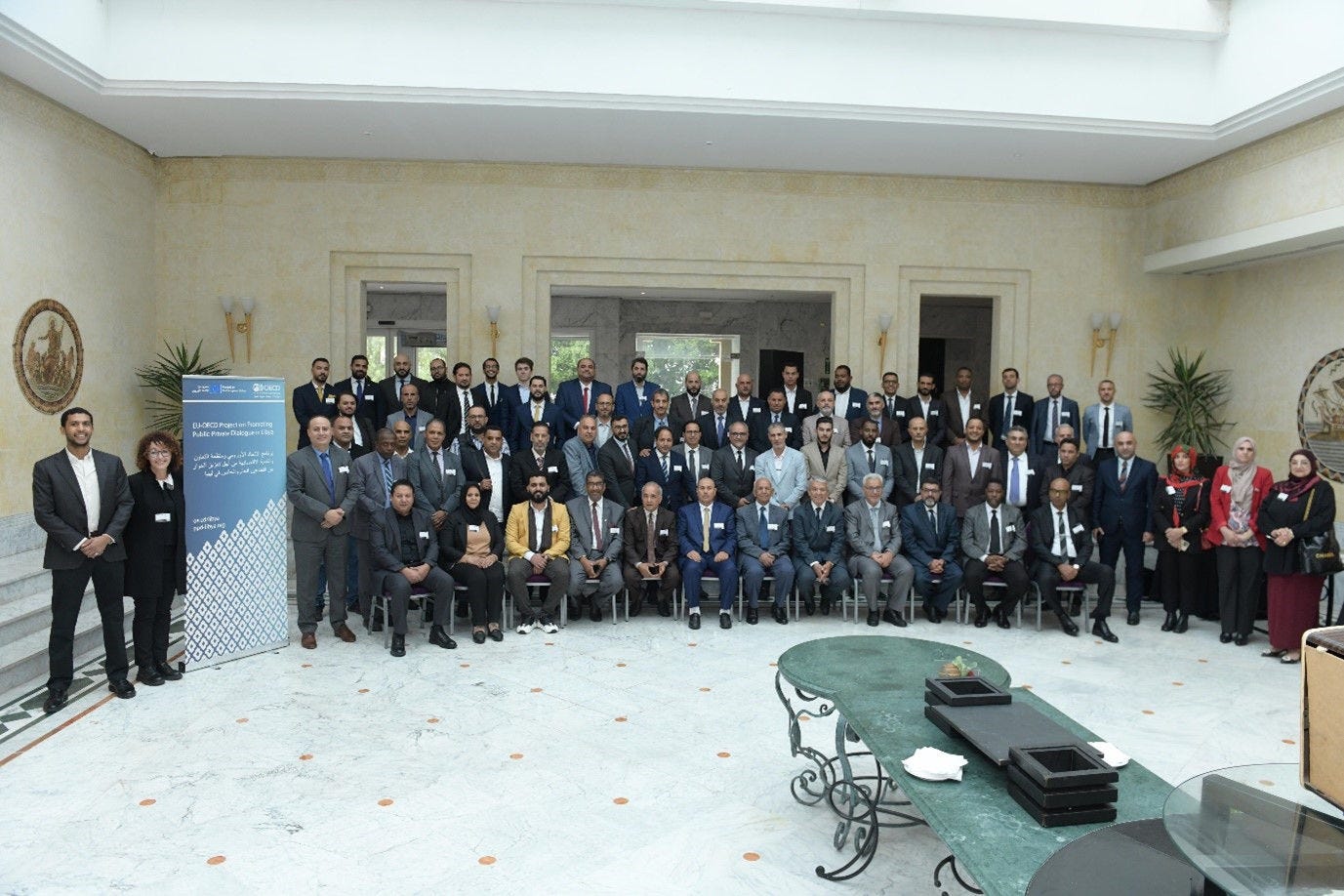Conflict and fragility exacerbate already precarious conditions, leading to significant declines in foreign direct investment, trade, and economic growth. Pre-existing structural challenges further amplify the effects of crises, including human loss, displacement, and unemployment, which negatively impact livelihood prospects. The private sector, through its role in facilitating financial flows, engaging in reconstruction efforts, and driving job creation and capital investment, plays a crucial part in enhancing economic resilience.
Economic Resilience
The scale and nature of challenges in MENA countries over the past decade underscore the urgency of prioritising economic resilience at the regional level. Achieving resilience necessitates a dual approach: addressing immediate short-term challenges while simultaneously implementing long-term solutions that can mitigate the impact of future shocks.

About
Mission
The limited capacity of fragile states to cope with global economic challenges, compounded by ongoing conflict and instability, has exacerbated poverty levels, hindered access to essential services, and hampered economic growth prospects. Ensuring economic resilience has emerged as a crucial factor in fostering peace and stability within the region. This involves enhancing the economy's ability to withstand shocks through strong macro-economic policies, diversification, and the promotion of private sector-led economies. As part of the focus on Economic Resilience, the Programme has been working on the following:
The MENA-OECD Economic Resilience Task Force was launched in Beirut on May 2017 and is co-chaired by Lebanon, Germany and the Islamic Development Bank. The Task Force aims to align the work of the MENA-OECD Competitiveness Programme with the needs of countries most affected by conflict and fragility in the region.
The EU-OECD project “Promoting Economic Resilience in Yemen” has enabled a baseline functioning of key central level economic institutions, both through the strengthening of human capacities and the enhancement of policy planning capabilities within these institutions.
The EU-OECD project on Promoting Public Private Dialogue in Libya has encouraged more active economic and social dialogue between Libya’s public and private actors.
Programme activities
- Capacity Building: The action plan involves interactive training sessions and workshops tailored to MENA policymakers' needs, facilitated by experienced OECD officials, experts, and peers. Topics covered include monetary policy, banking supervision, gender empowerment, and more.
- Peer Support and Policy Dialogue: Emphasizing peer-to-peer learning, the action plan will engage practitioners from OECD and MENA countries. This approach includes peer reviews and policy dialogue, aiming to transfer good practices, upgrade policy orientations, and foster positive peer pressure for change.
- Engagement with relevant OECD committees and regional platforms will be facilitated to enhance policy dialogue and learning opportunities for public officials and private sector stakeholders.
- Utilisation of online knowledge sharing platforms to promote wider dissemination of training material and information and to promote continuous learning.
- Enabling key central level economic institutions to lead economic recovery, enhance public finance and domestic resources mobilisation, develop policy capacity for climate change adaptation, to manage the transition from a conflict to peacetime economy.
- Promoting resilience and private sector development, focusing on public private dialogue, inclusive networks, and better information on women’s economic empowerment, value chains and local and regional synergies.
- Supporting donor coordination and policy coherence.
Related Projects
Related publications
Related events
- Strengthening institutional underpinnings of key economic institutions in Yemen - 27-29 February, Amman, Jordan
- Capacity building workshop on agricultural best practices in Libya – 12-14 December, Bari, Italy
- Libya National Public Private Dialogue – 29-30 November, Tunis, Tunisia


